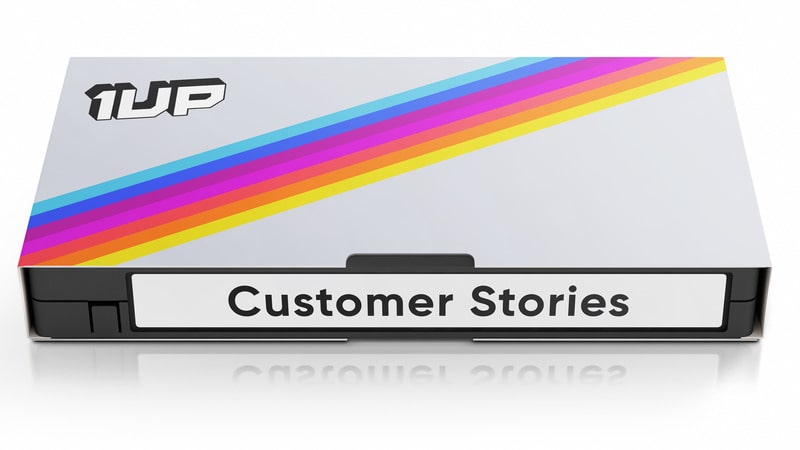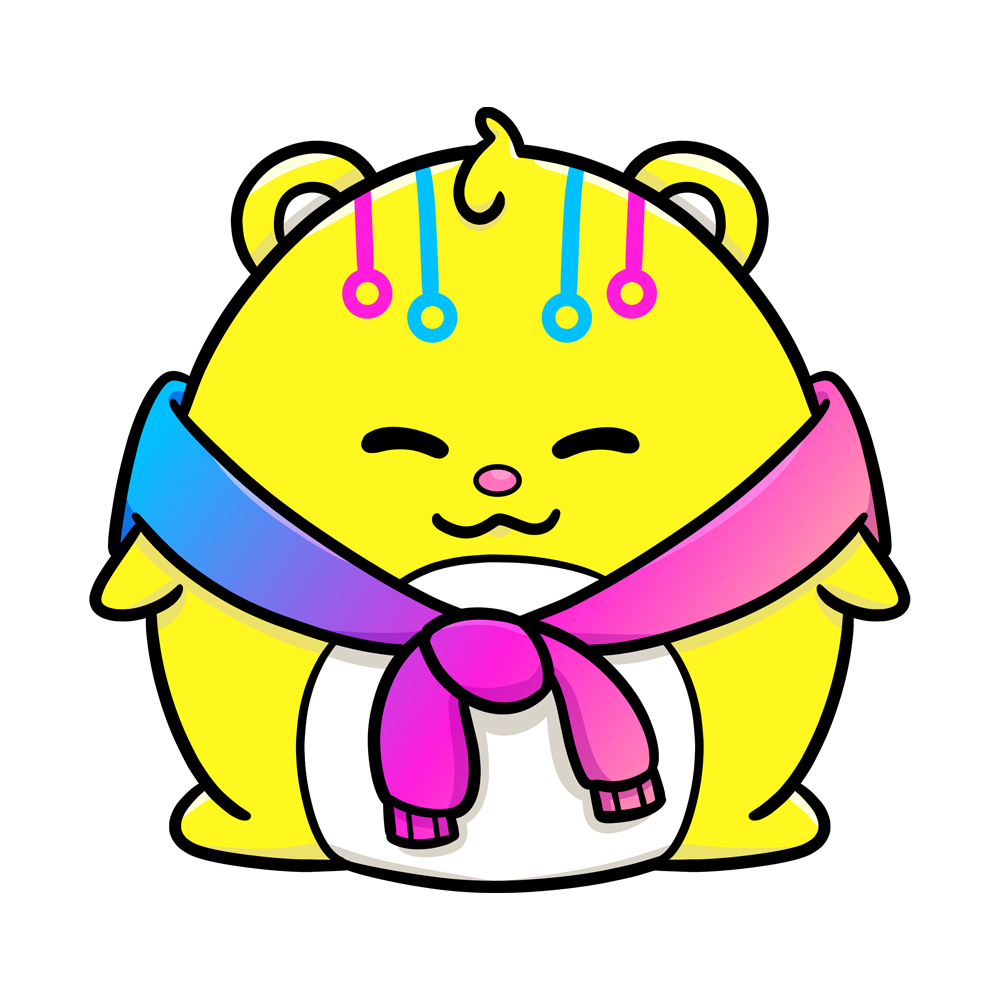Products from big companies like Google, Microsoft, and Apple have been so tightly woven into our lives that it’s hard to imagine anything or anyone taking their places. But we have seen, time and again, plucky startup businesses challenging these industry giants with innovative technology, revolutionary business models, and clever marketing.
Today, we’ll take a look at 8 memorable rivalries between tech startups and big corporations. We’ll examine how these rivalries came to be and analyze some of the pivotal moments that turned the tide in one company’s favor.
We’ll also tell you who we think the winners of these epic rivalries were and whether startups or big companies have fared better overall.
1. Diapers.com vs. Amazon

Backstory
Diapers.com built a huge business offering free delivery of diapers and other baby products.
It grew to generate over $100 million in revenue. While that’s a drop in the bucket for Amazon, it was revenue to enough to get the giant’s attention.
Amazon approached Diapers.com about acquisition several times and was turned down.
That’s when Jeff B. went full scorched earth on this mom and pop shop.

Key Moment

In a move that could be described as evil genius, Amazon started selling diapers at a loss to put price pressure on Diapers.com. Amazon sold a case of Pampers for $39 while Diapers.com had the same case for $45.
Was it a bold move? Yes.
Was it illegal? Nope.
The companies would also trade blows on Google Ads, bidding heavily on keywords in a dramatic race to the bottom. One can only imagine how high the cost-per-click can go when the world’s largest retailer is targeting you for deletion.
Winner: Amazon
Amazon ended up acquiring Diapers.com’s parent company, Quidsi, Inc., for $545 million.
The war over baby poop was over. Amazon had won.
But there was a happy ending for Diapers.com founder Marc Lore. He went on to found Jet.com which sold to Walmart for a whopping $3B.
2. GitLab vs. GitHub

Backstory
This is the story of how a startup rivalry became something much larger.
When it comes to developer tooling, GitLab and GitHub are top of the line. Both are web-based code management repositories with similar user personas.
GitHub started before GitLab and built a strong following in the open source community. GitLab was founded in 2011 and took a more enterprise-facing approach.
This decade-long rivalry saw one company IPO while the other took a different route.
Key Moment

In a move that stunned the world of open source software, Microsoft acquired GitHub for $7.5 billion in stock.
This armed the company with a much bigger bankroll and put the weight of the Microsoft brand behind them.
But was it actually good for GitHub? Many in the OSS community argued that this was a step in the wrong direction and feared that Microsoft’s influence over the platform would cause issues down the line (it has).
Winner: Microsoft (GitHub)
GitLab is now a publicly traded company (and is performing quite well) but it’s up against the biggest of Big Cos: Microsoft.
And while some developers are strongly against working with MSFT, that hasn’t stopped GitHub’s growth. Today, the company remains a separate brand boasting immense user volume at a whopping 90 million developers.
3. Eventbrite vs. Ticketmaster

Backstory
Ticketmaster had what could be considered a monopoly on concert ticket sales.
That all changed when Eventbrite launched in 2006. The company would come to be known as the place to go for smaller venues and local shows, while Ticketmaster was associated with selling out stadiums and arenas.
By targeting a niche set of customers interested in smaller events, Eventbrite was able to gain a foothold in what was once considered a market impossible to compete in.
Key Moment

Eventbrite IPO’d in 2018, raising $200 million and touting its competitive advantages in user experience, simple price structure, and focus on a broader set of creators.
Facing the hurdle of a lifetime with COVID-19 bringing events to a halt, the company would continue pushing ahead and, as of Q4 2022, Eventbrite’s reported revenue growth of 91% year over year.
Winner: Eventbrite
Ticketmaster takes a lot of heat for price gouging. WTH is a “convenience fee” anyway?
That’s why we’ve got to give this win to Eventbrite.
Yes, at the time of this writing, their share price is down 80% from its IPO high. And yes, the pandemic hit them really hard. But the company has proven they can go toe-to-toe with Ticketmaster. It’s a story reminiscent of Diapers.com vs. Amazon, but this one’s not over yet.
If you’re keeping track, Big Cos are up 2-1 so far.
4. Justworks vs. ADP

Backstory
ADP was once the gold standard for HR solutions.
How is it then, that Justworks has become such a popular alternative?
The key, it would seem, is Justworks’ focus on small businesses. The company’s concentration on the SMB segment has given them a leg up on ADP, who is still the incumbent platform for larger enterprises. In addition to a rich feature set, Justworks customers point to usability and ease of use as key differentiators.
Key Moment

Justworks pulled back on IPO plans amid a difficult market climate. The company says it still plans to go public, but time will tell.
Winner: Justworks
Sure, they cancelled the IPO but come on…the UI is excellent and the user reviews speak for themselves.
Justworks has quickly become a go-to for new businesses. While ADP still wears the HR crown, it’s clear that Justworks will not be held back.
Tie game. 2-2.
5. DuckDuckGo vs. Google

Backstory
A search engine that prioritizes privacy? With no targeted advertising? As an alternative to Google?
Yeah, right. Who’s going to use that?
Apparently, more than 100 million people.
That’s right, DuckDuckGo is not only one of the greatest company names of all time, it’s also a viable alternative to Google Search. DuckDuckGo’s web and mobile browsers claim to block trackers from search engines and social networks. The company has found a strong following among privacy-minded users, and many in the IT and cybersecurity industries have made DDG their default browser.
Key Moment

Passing the 100M daily searches milestone was a huge moment for the company.
The search engine has been trending up since mid-2020 with more than 2 billion search queries per month. While that’s still a fraction of what Google sees, it’s still a massive amount of traffic and paints a promising picture of the company’s future.
Winner: DuckDuckGo
DDG is punching way above its weight. While it may not be hurting Google yet, it has won over the hearts and minds of millions of users.
And it’s definitely better than Bing.
3-2 in favor of the startups.
6. Vimeo vs. Youtube

Backstory
Did you know YouTube’s rival Vimeo actually started first? That’s right, Vimeo launched a full year before YouTube as a spin-off of video website CollegeHumor.
Despite getting a head start, Vimeo is significantly smaller than YouTube and competes in an almost startup-like manner.
The company boasts a respectable 170M viewers but remains far behind YouTube’s 1 billion user count.
Key Moment

In what some call the greatest tech acquisition of all time, Google’s purchase of YouTube solidified the video sharing platform’s place in history. Today the company is a huge driver of Google’s top line revenue; so much so that it meaningfully impacts investor sentiment in the tech giant.
Winner: YouTube
Vimeo would continue to grow and eventually went public in 2021. The company’s revenue increases as a result of a strong push towards businesses and professional creators.
However, in spite of this aggressive push and strong gains in the market, Vimeo still pales in comparison to YouTube.
Big tech ties the score at 3-3.
7. Figma vs. Adobe

Backstory
Adobe is widely-recognized as a leader in design software. Much can be said about the love (and hate) for the company and its suite of products, but one thing’s for sure: it has remained a mainstay among designers for decades.
That is, until Figma came along in 2012.
In the mid-to-late 2010s designers were drawn (no pun intended) to Figma’s primarily web-based offering, citing ease of use and a welcoming pricing plan.
Key Moment

Adobe bought Figma for a massive 20 billion dollars in what would represent the largest acquisition of a venture-backed company.
This led to an uproar in the design world; for reasons similar to Microsoft’s acquisition of GitHub. Many posts have been written lamenting Figma’s acquisition.
Winner: Figma
WAIT. HEAR ME OUT.
Yes, Adobe may have bought them up, but the real winner here is Figma. The product has become a new gold standard among designers and has a stellar reputation. The company still has so much room to grow in the decade ahead and its momentum is unparalleled by most other products in the space.
Moreover, the team has been promised autonomy and the brand remains intact (for now).
+1 for the startups.
8. Napster vs. Metallica

Ah, Napster. The internet’s first “killer app.”
Not just because it was an innovative way to download music; you didn’t know if you were going to get your favorite song or a computer killing virus when using it.
Remember downloading Limp_Korn_of_a_Down_Linkin_Bizkit.exe? Hit single of the year.
Napster use peaked with 26.4 million users worldwide in 2001. The only problem was…the music downloaded was shared illegally.
Many in the music industry were concerned with the loss of revenue that came from illegal downloads, but one artist in particular took action.
Key Moment #1

Lars Ulrich, drummer and co-founder of Metallica, was not happy. So he marched right into congress and gave them a piece of his mind.
The band was particularly angry about unreleased music leaking on Napster and then being played on radio stations across the country. For most musicians this would be a happy moment, but if you’re a giant megacorp like Metallica, free radio play is probably not what you’re looking for.
Disclaimer: I personally downloaded “I Disappear” off Napster and burned it to a CD before the single even hit stores.
Key Moment #2

Metallica ended up suing Napster and went on a PR campaign against the company. They even went as far as creating anti-Napster videos.
But none of their efforts were nearly as impactful as the moment Napster co-founder Shawn Fanning wore a Metallica shirt to the 2000 MTV VMAs.
Winner: Napster
Being sued into oblivion by half the music industry is tough.
On July 11, 2001, Napster shut down its entire file-sharing network. It had lost the battle.
OR DID IT?
Many credit Napster with having reshaped society and technology forever. It kickstarted the streaming industry. Some argue that the iPod would not exist if Napster hadn’t paved the way for downloadable music. If that’s true then this startup really deserves more credit.
Final score? 5-3 for Startups. Let’s gooooooo!



 Instagram
Instagram 











